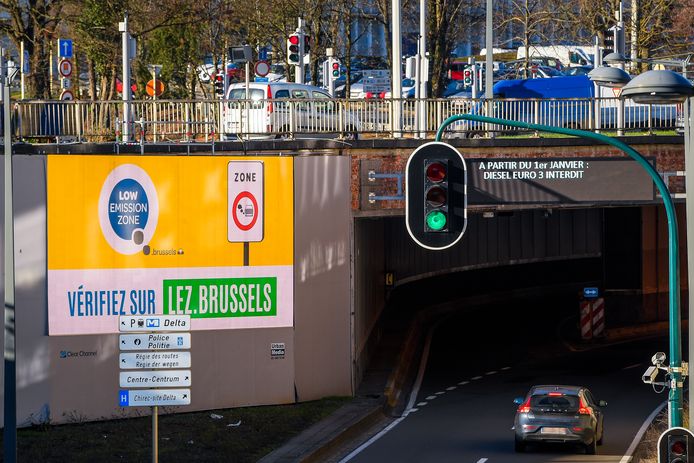The Brussels Regional government on Thursday approved the gradual phasing out of vehicles with combustion engines, which could prevent over one hundred deaths in the capital each year, according to Bruxelles Environnement.
Alongside the introduction of the Low Emission Zone (LEZ) and the reduction in traffic envisaged by the Good Move plan, the eventual ban is part of the region's goal to be climate neutral by 2050 and to improve air quality, which in turn will benefit the health of its residents.
"The expected improvement in air quality will prevent 100-110 premature deaths per year," the administration for the environment and energy in the Brussels-Capital Region said on Friday in a press release.
In addition, the phasing out of diesel vehicles by 2030 and those running on petrol by 2035 will reduce nitrogen dioxide (NO2)-related diseases by 25% and save €100-350 million in health-related costs, the administration found.
Related News
- Zero pollution: How can the EU mobilise ICT-companies to fight climate change?
- Brussels approves plans for sustainable 'climate' district near canal
Both the LEZ and the ban on combustion engine vehicles combines could lead to a 65% to 75% reduction in CO2 emissions from transport.
Since 2018, the LEZ in Brussels has contributed to reducing NO2 and particulate matter emissions from transport by 11% and 11.5% respectively in the region.
"In Brussels, the low-emission zone has already improved air quality. Today, the government is sending out a new clear signal: it wants to go further to protect the health of its inhabitants, to protect the health of its inhabitants, encourage less polluting mobility and live up to European climate ambitions," Alain Maron, Brussels Minister for Climate Transition, Environment and Energy said in a press statement.
Alongside this ban, the Good Move plan will further reduce the use of cars by encouraging active (walking, cycling) and collective modes of transport (shared cars and public transport), making the city more sustainable, whilst focusing on electrification of motor vehicles still on the road.
The government will set out a roadmap called 'Low Emission Mobility Brussels' to gradually reach these goals, of which several initiatives have already been implemented, including developing the charging infrastructure for electric vehicles, obliging local and regional authorities to purchase zero-emission vehicles as of 2025, and more.
This will also include the release of large budgets for mobility in the coming years, including almost €1 billion for public transport (bus, tram and metro) in 2021 in order to improve its provision and accessibility.

